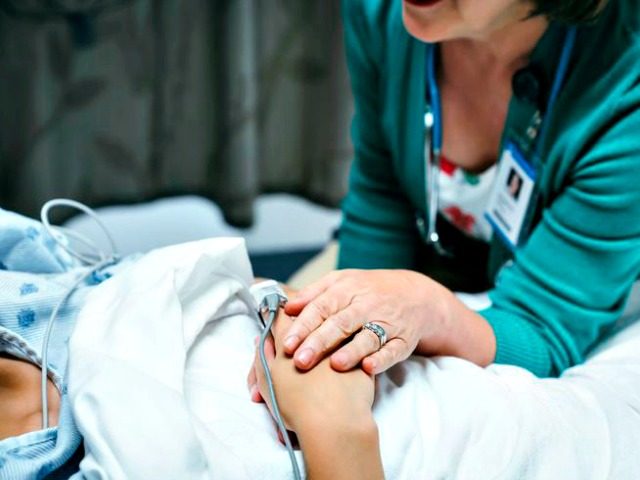A federal judge struck down a Trump administration conscience rule that would have allowed health professionals to reject performing and participating in abortions, assisted suicide, and other medical services that are in conflict with their faith beliefs or moral values.
In his 147-page decision on Wednesday, Judge Paul Engelmayer of the United States District Court for the Southern District of New York, an appointee of Barack Obama, said he “vacates HHS’s 2019 Rule in its entirety.”
Judge Engelmayer wrote:
HHS’s argument that relief should be limited to the individual challenger of an unlawful Rule, taken to its logical extreme, would ultimately require a profusion of actions to assure that such a Rule was never applied.
[I]t is clear that HHS’s justification for the Rule—that a ‘significant increase’ in complaints called for agency action—is wholly unsupported by the record. HHS has promulgated a Rule that did not respond to any documented problem.
“The Rule represents a classic solution in search of a problem,” he said.
As the Washington Post reported, New York Attorney General Letitia James, who led the challenge, argued, “the rule illegally favored the personal views of health-care workers over the needs of patients and threatened to hobble the ability of state-run health-care facilities to provide effective care.”
James tagged the Trump HHS rule the “refusal of care rule.”
“The refusal of care rule was an unlawful attempt to allow health care providers to openly discriminate and refuse to provide necessary health care to patients based on providers’ ‘religious beliefs or moral objections,’” she said in a statement.
The rule, which was challenged by 19 states and Planned Parenthood, would have taken effect on November 22. The Trump administration announced the final rule on the National Day of Prayer in May. The rule would have protected healthcare providers from discrimination when they exercise their conscience rights in programs funded by the Department of Health and Human Services (HHS), the department’s Office for Civil Rights (OCR) said.
“Finally, laws prohibiting government funded discrimination against conscience and religious freedom will be enforced like every other civil rights law,” said OCR Director Roger Severino in May, adding:
This rule ensures that healthcare entities and professionals won’t be bullied out of the health care field because they decline to participate in actions that violate their conscience, including the taking of human life. Protecting conscience and religious freedom not only fosters greater diversity in healthcare, it’s the law.
The rule would have enforced approximately 25 provisions already passed by Congress that protect the conscience rights of healthcare professionals, but which some faith groups said were not carried out due to confusion or lack of awareness within the healthcare community.
Grazie Pozo Christie, MD, policy advisor for The Catholic Association, said, reacting to the decision:
Health care workers go into medicine with noble ideals and to preserve human lives, not end them. They deserve the freedom to act in accordance with their conscience, especially in matters as serious as life and death.
Stephanie Taub, senior counsel for First Liberty Institute, said the judge’s decision “leaves health care professionals across America vulnerable to being forced to perform, facilitate, or refer for procedures that violate their conscience.”
Father Frank Pavone, national director of Priests for Life, said in a statement that “freedom of conscience is a fundamental aspect of our human dignity.”
“Once again, a judge appointed by a Democrat is standing in the way of protections for people who cannot be involved in any aspect of abortion because of deeply held religious beliefs,” he said. “Once again, the importance of having a pro-life White House and a pro-life majority in the Senate is underscored.”

COMMENTS
Please let us know if you're having issues with commenting.